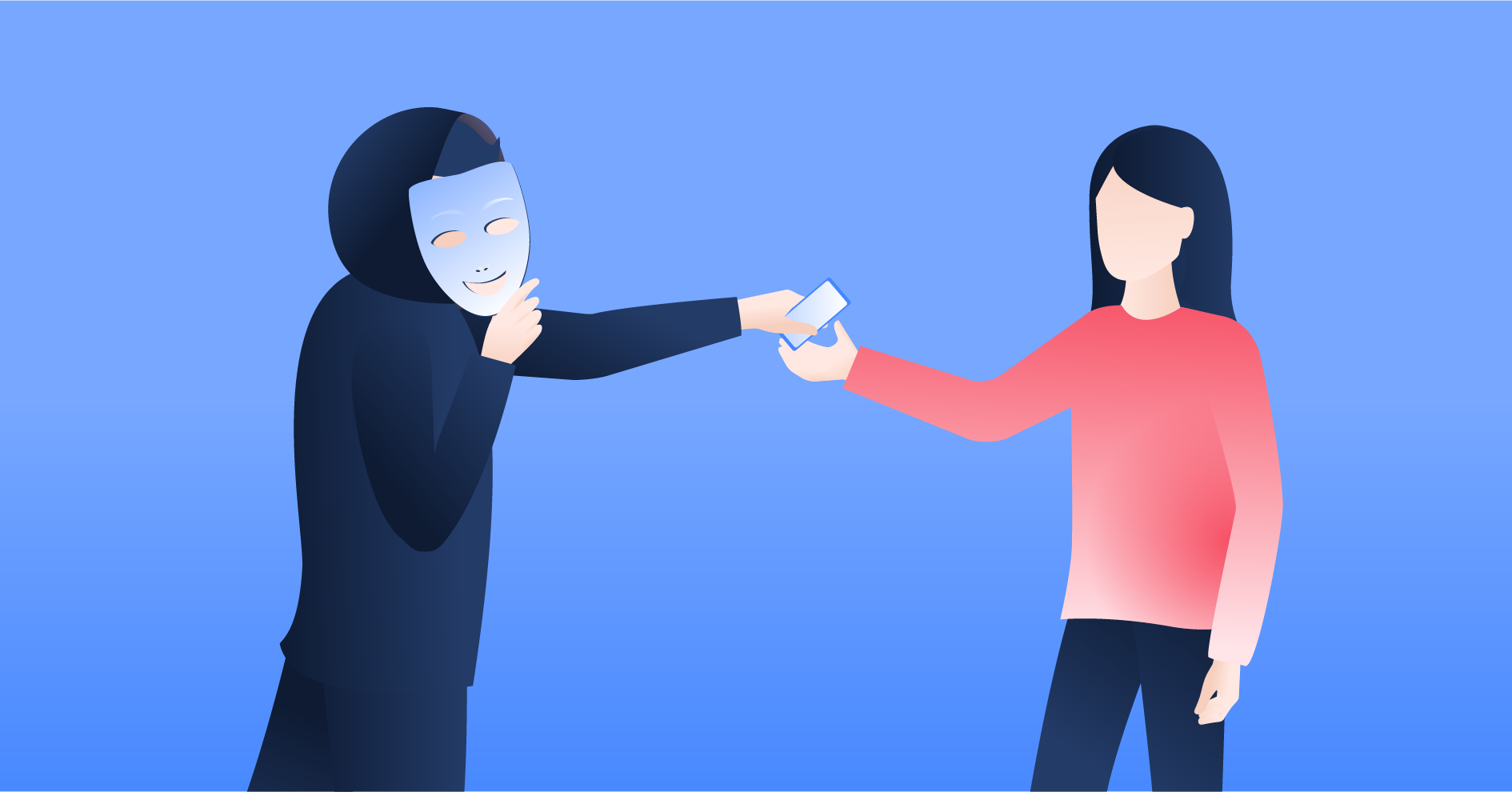Are free apps safe to use?
Could your free flashlight app or photo editor be stealing your private data? Can you trust free apps? Find out more about the dangers they pose, how to recognize the risks, and the ways you can protect yourself.

This year, eight dangerous free apps were flagged on the Google Play store that could steal your banking details and even bypass two-factor authentication.
In 2019, SuperVPN, a free “online privacy” app, raised so many red flags that it was removed from the Google Play Store…only to reappear later. Be very careful with this service. The personal data of millions of their users was found for sale, including credentials, device data, payment details, and names. But this isn’t an isolated incident; check out our article on the worst apps for your security.
Downloading free apps can be just as bad as handing over your most personal information to hackers. But what exactly is it that can make a free app dangerous?
What makes a free app dangerous?
Dangerous free apps are made by rogue developers or hackers with malicious intent. There are two main ways they can get to you:
1. By tracking you
If your free photo editor app is requesting access to your contacts or location, you should be suspicious. Trackers are built into some free apps to record your movements, which could tell them:
- Your home address
- How much you earn
- Where you work
- What gym you go to
- Which shops you frequent
- Who you talk to and how often you do so
- Who you visit and how often you see them
Advertisers and third parties pay big money for consumer data like this, and hackers who see you as a target will find plenty of malicious ways to exploit your information.
2. By infecting your device
- Malware and spyware is planted in some free apps to infect your device. Once your device is infected, the malware could paralyze it, and steal your photos, videos, payment information, and name.
- Spyware can be planted in some free apps to track and record your phone calls, messages, and movements, as well as hacking into your camera.
Why are some apps free and some paid?
If a developer or company gives away an app for free, there’s definitely some way they’re making money from it. They can do this in a number of ways:
- Ads: If you create an app, you can make money by using Google AdSense to place ads in the user interface. If a few million people are using your app, you can charge higher rates to advertisers – even though your app is free to users.
- Tracking: Some apps have embedded trackers in them that collect and share your data with marketing companies. Consumer data is gold dust to them, and they’ll pay a high price for it.
- Ease: With a one-off charge of $25, budding developers (or hackers) can easily build an app and release it on the Play Store. And Google makes it super simple to create an AdSense account to start showing ads in an app. This is probably part of the reason that so many dangerous and infected apps are found on the Play Store, compared to Apple’s App Store.
Without ads and embedded trackers to make money from, trustworthy companies ask users to pay for their services, or add a premium option.
How to check if an app is safe?
- Read the small print: The small print will detail how your information might be tracked, collected, and stored.
- Google search the app: This is an obvious one, but a quick search will bring up any forum responses from users who’ve red-flagged the app.
- Keep an eye on your device: If a dangerous free app has infected your device, it might start switching between apps erratically, fonts and colours might change suddenly, and your phone might repeatedly freeze.
- Adjust your location and privacy settings: Your phone’s settings let you choose which apps you share your location with. If you notice an app asking to access parts of your device that it really doesn’t need to, that could be a warning sign.
- Delete the app immediately: If you notice your phone acting erratically after you download an app, you should probably delete it. Check out our step-by-step guide on how to remove malware if you think you’ve been infected.
Want to read more like this?
Get the latest news and tips from NordVPN.